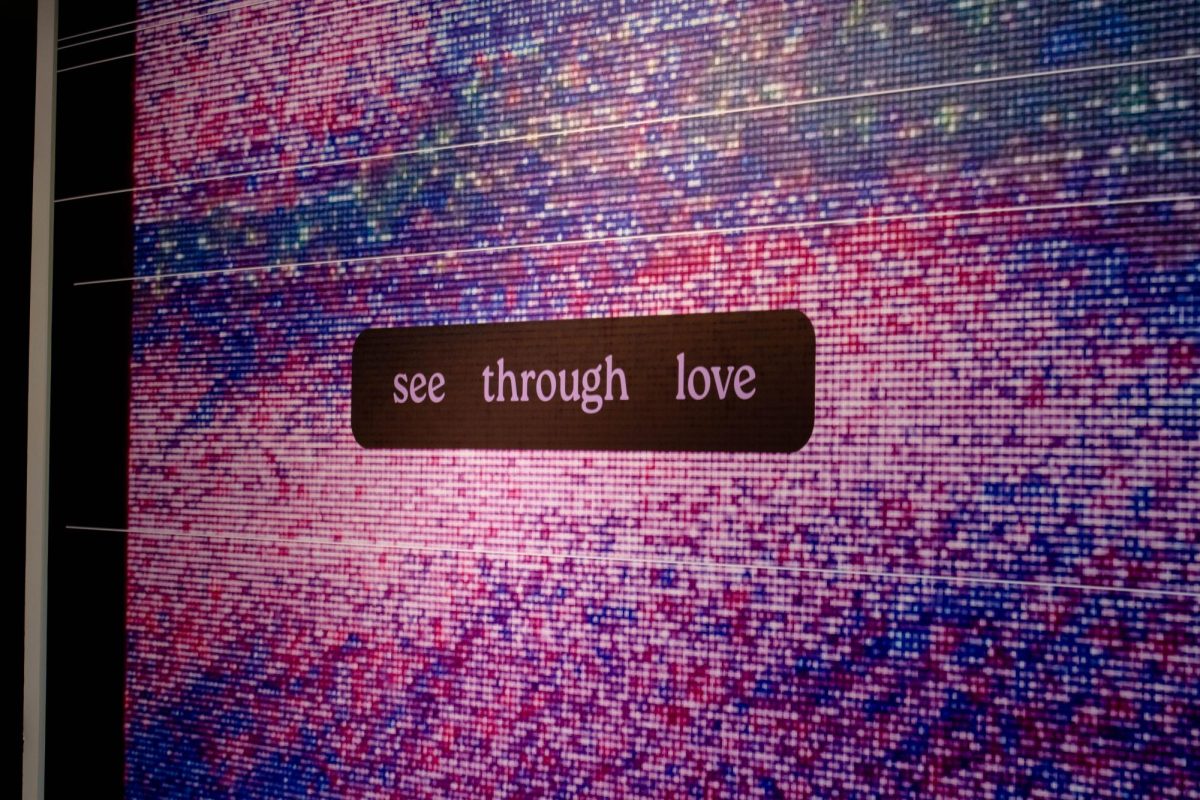The mythological origins of how we understand queer love between women lays the perfect foundation for Lucy Dacus’ fourth studio album, “Forever Is A Feeling,” which came out March 28.
The word “sapphic” comes from the Ancient Greek poet Sappho, who hailed from the island of Lesbos, where the word “lesbian” comes from. Sappho’s poetry has long been read as queer, even though her sexuality has been endlessly debated.
A little more than a week before the album dropped, Dacus confirmed her relationship with boygenius bandmate Julien Baker, providing a subject for the 13-track epic love story of an album.
Its opening track, “Calliope Prelude,” is a sparse and somewhat screechy violin solo layered on top of itself, creating an ethereal sound befitting of a ballet or some other classic performance art.
Calliope was the eldest of the Greek muses, as well as the goddess of eloquence and epic poetry. The orchestral opener starkly contrasts Dacus’ usual indie rock in a way that pulls the listener in, imploring them to listen front to back.
It transitions seamlessly into the familiar sonic atmosphere of “Big Deal.” Soft snare carries forward Dacus’ echoey, melodic voice detailing the aftermath of a love confession between people who have known each other for years.
Dacus describes how the love she already has for the subject would dull the pain of their romance potentially failing. It’s one of several songs on the album where Dacus freezes a moment in time and teases it for details, giving it a coming-of-age quality accentuated by ringing resonance.
Lead single “Ankles,” which started the album’s hype back in January, is a short and sweet sketch of lesbian love where mutual yearning gives way to passionate sex which gives way to quiet domesticity.
“Pull me by the ankles to the edge of the bed / And take me like you do in your dreams,” Dacus sings. The chorus concludes with, “Then help me with the crossword in the morning / You are gonna make me tea / Gonna ask me how did I sleep.”
A staccato cello bassline and the gradual addition of glimmering guitar creates a momentous atmosphere similar to “Big Deal,” but one that feels more hopeful.
Epic poems are not without their trials, though. The sixth and seventh tracks “Talk” and “For Keeps” mark the halfway point of the album with a lower pitch and distorted guitar enveloping the listener in a windstorm of a failing relationship and gentle acoustic guitar representing its aftermath.
The songs also demonstrate Dacus’ mastery of kicker lyrics that leave the listener dumbfounded: “I didn’t mean to start / Talking in the past tense / I guess I don’t know what I think / ‘Til I start talking” is how “Talk” ends.
Title track “Forever Is A Feeling” leans into the coming-of-age feeling throughout Dacus’ discography as well as the album’s Neoclassical aesthetic — the glide of a harp ushers in the chorus referring to love as both “bliss” and “hell.”
Backing vocals from Baker make an exciting appearance, as well as those of fellow boygenius member Phoebe Bridgers, pointing to how deep love can run between people.
“Best Guess,” is a warm, upbeat sapphic love anthem that made me smile and then want to cry as I thought of my own partner.
Hozier makes a welcome appearance on “Bullseye,” a reflection on a relationship ending while still being happy that it happened. His and Dacus’ vocals blend wonderfully in a collaboration I didn’t know I needed.
Penultimate track “Most Wanted Man” uses a Southern-rock sound to paint another picture of domesticity and a desire to keep the connection sacred even with how open Dacus is on the album.
Baker, who makes another appearance, plays the role of “the most wanted man in West Tennessee” in Dacus’ eyes (Baker grew up outside of Memphis).
“We can burn it when it’s done / Soot and cinder in the sun / Nothing left for anyone to read and weep,” Dacus sings, perhaps about the album itself.
Endings are certainly Dacus’ forté. The intense distorted guitar outro of “Lost Time” creates a grand finale to our epic story, qualities that exist in past songs such as “Night Shift” and “Triple Dog Dare.”
Still, the ending is not the only place her skills lie. Every track on the album has its place, and removing any of them renders the narrative incomplete, whether or not they stick with you.
You don’t need to be sapphic to recognize good music or a love story for the ages, and “Forever Is A Feeling,” wonderfully combines the two with Dacus’ Grammy-winning skill, radical honesty and open heart.














